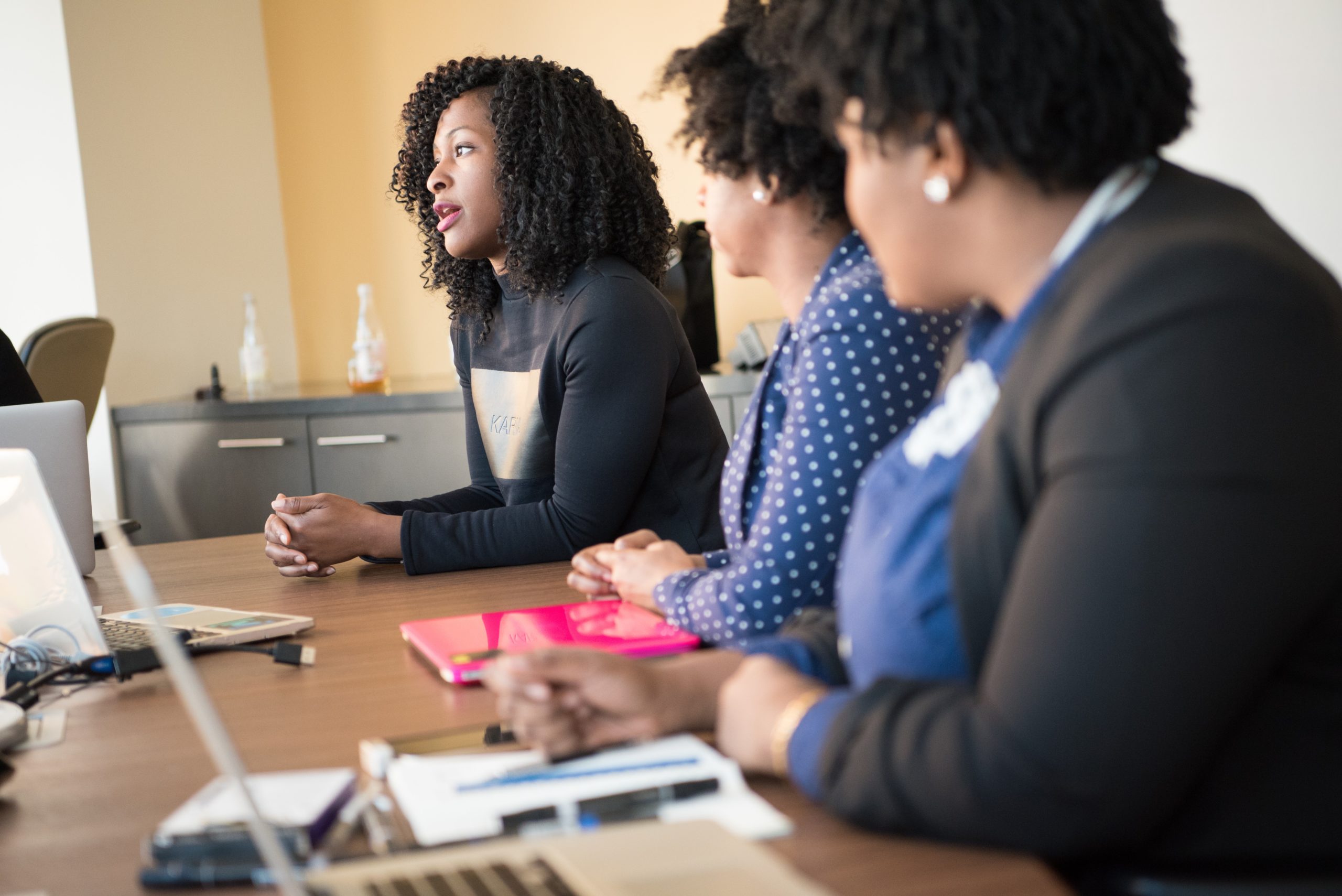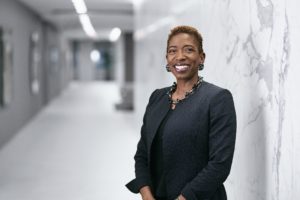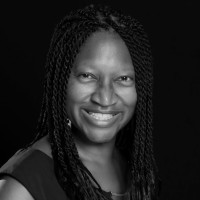

By Loretta McCarthy, Managing Partner of Golden Seeds
December 1, 2020
Funding is critical for new businesses, but female and multicultural entrepreneurs struggle to obtain capital. The vast majority of investment money goes to traditional founders rather than women or people of color. At a recent Golden Seeds Trend Talk, two Golden Seeds members – Carla Harris, Vice Chairman and Managing Director at Morgan Stanley, who heads up the Multicultural Client Strategy Group, and Stephanie Fowler, a 25-year veteran of Sumitomo Mitsui Trust Bank and Founder and Managing Partner of the boutique investment firm Morgan Capital Partners, LLC – discussed the funding gap and solutions to the problem. This is one in a series of Trend Talks focusing on topics that are relevant, instructive and inspiring.
Stephanie Fowler: The disparity in funding for multicultural and women founders wasn’t talked about much when Morgan Stanley asked you to address the problem six years ago. Where did you start?
Carla Harris: In 2014, the chairman of Morgan Stanley James Gorman said no large investment firm on Wall Street had successfully engaged with multicultural constituents, and he wanted to be the leader in that space. It was my job to figure out how to do it. The first thing I did was create an event for senior executives from the African American, Hispanic American, Asian American and Native American communities. It tapped into a real appetite in the market — every year, there’s a waiting list.
The second step was creating the “Access and Opportunity” podcast to elevate the conversation around the inequitable distribution of capital. When you ask people who distribute capital why they don’t have more women or people of color in their portfolios, they say they can’t find anybody. I wanted to put together a playbook to show them how. I also wanted successful entrepreneurs to explain how they got funding so other founders could try those avenues.
Stephanie Fowler: What led to the launch of Morgan Stanley’s Multicultural Innovation Lab, and how has it been working?

Carla Harris: I participated in an event called Power Moves in 2014, where I met female and multicultural founders of tech companies in education, medical, health care, consumer products and more. I realized that Black and Hispanic businesses combined serve a market with almost $4 trillion in spending power, and as the leading global investment bank, we needed to be playing in that space. Morgan Stanley participated in the Power Moves conference until it was discontinued, then in 2017 set up our own Multicultural Accelerator Lab. We invest in technology and technology-enabled startups with women and multicultural founders and C-suite executives, and our track record proves that we know how to pick winners. Most traditional venture capital firms succeed with only one company out of 10. In our lab, only one out of 10 don’t work out. In fact, it’s been so successful that Morgan Stanley is doubling the size to include 20 companies a year. We’re also increasing the amount of money we can invest in each to $250,000, and we’re offering follow-on investments to companies that are too advanced for the lab.
Stephanie Fowler: Given that the funding gap wasn’t in the forefront at that time, did you encounter challenges to your efforts to address it?
Carla Harris: I give the chairman a lot of credit. He told me his goal and gave me a blank piece of paper to create the vision. Some of the Morgan Stanley people agreed it was the right thing to do but didn’t expect it to make any money. I said, “Hold it right there. If the only reason we do this is because it’s right, there’s a problem. You’ll never get everyone to agree on the right thing to do, which is why we haven’t gotten further with diversity and inclusion in general.”
But business people can agree on the commercial thing to do, so this has to be commercially relevant. An investment bank’s super-power is taking capital from people who have it and giving it to people who need it — not because we like them and want to help them, but because it’s a commercial imperative for us. There has to be an equilibrium, so both sides get something out of the deal. With that mindset, you’ll have different people on your investment committee and different objectives. So that’s what we drove toward.
Stephanie Fowler: Tell us about “The Trillion-Dollar Blind Spot,” a whitepaper that detailed the reasons for the funding gap, its economic impact and actions to achieve more equitable funding in the future. How did your experiences with the lab influence it?
Carla Harris: “The Trillion-Dollar Blind Spot” gave us real data to put out there. If everything is anecdotal, it becomes an excuse for people not to embrace it. The fact that the companies in our lab were so successful time after time proved it wasn’t an anomaly. That’s because we treated the lab as we would any fund and put together the right investment criteria. We learned that you have to insert yourself into the ecosystem so you become a trusted partner. My research showed that many female entrepreneurs who were turned down by other accelerators didn’t go back because the experience was so horrible. It was important to us that we position ourselves as a safe space. So we committed to doing more than just giving these companies money; we would invest our time and expertise in them. That’s the message we want to get out to other VCs. If you really want to find multicultural and women founders, this is how you have to show up in the marketplace.
Stephanie Fowler: What do you recommend to VCs who want to invest in diverse companies but say they can’t find them?
Carla Harris: The first thing is to make sure you have diversity on your investment committee. Many of the VCs we’ve spoken to don’t have any women or people of color on their committees. The second is to access the network and connections people have within diverse communities. The third thing—and the most profound, in some ways—is to rethink your definition of expansion risk.
All VCs set aside a percentage of their portfolio for investments outside their core competencies, for things they have no experience or expertise in. Take cloud computing and ride-share services, for example. They were unfamiliar ideas 20 years ago, but now they’re huge vertical industries, and early investors are reaping the rewards. We’re urging investors to put women and multicultural businesses under the risk expansion umbrella. You might not know about these spaces but put down a marker and see how things evolve. The hair-weaving industry is an example. Traditional investors don’t know anything about it, but artificial hair is a multibillion-dollar market. Categorizing something like this as risk expansion gives VCs a comfortable, familiar way to invest in businesses owned by women and people of color.
Another message we’re trying to get across is that there are extraordinary yield opportunities in investing in a female or multicultural founder. It takes tremendous grit and resilience for them just to get in front of a VC’s desk. That proves they can get things done, so an investment in their company has already been significantly derisked.
Stephanie Fowler: What advice do you have for female and multicultural entrepreneurs interacting with potential investors?
Carla Harris: Traditionally, a woman or person of color faces difficult obstacles, like prejudices or stereotypes, others often don’t face. You need to underscore your expertise, show how conversant you are about the industry and your competition—why you’re better than anyone else out there. Answer every question and try not to get emotional about questions that are microaggressions. Just jump right over them.
Learn more about Carla Harris here. Learn about the Morgan Stanley Multicultural Innovation Lab here.
Learn more about the work of Golden Seeds and how we propel women entrepreneurs.